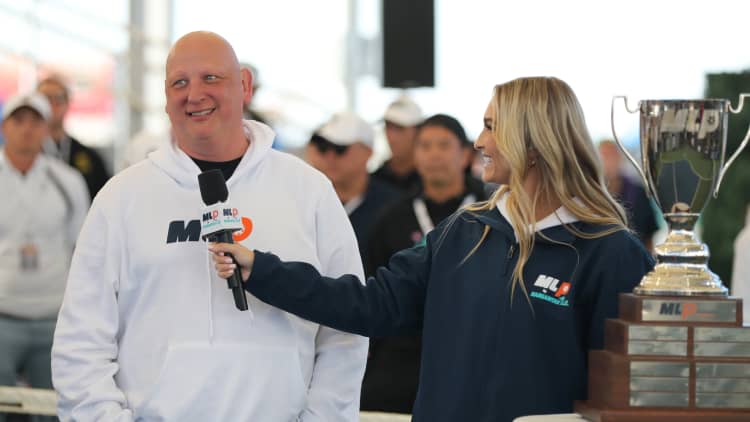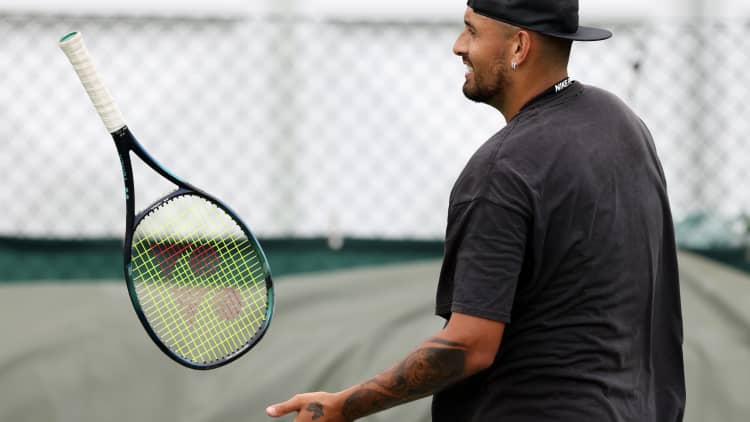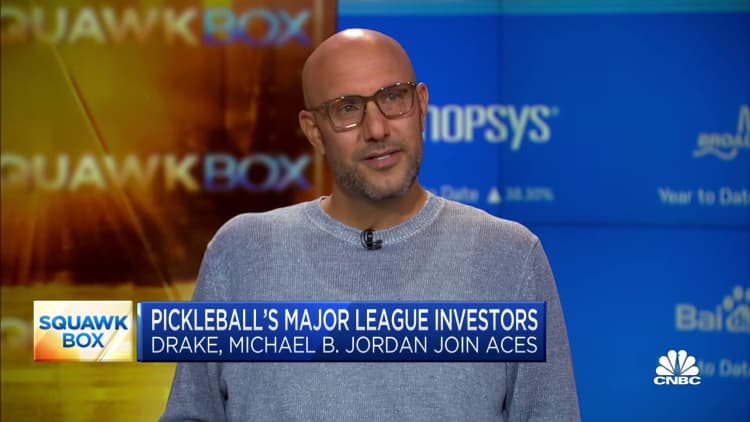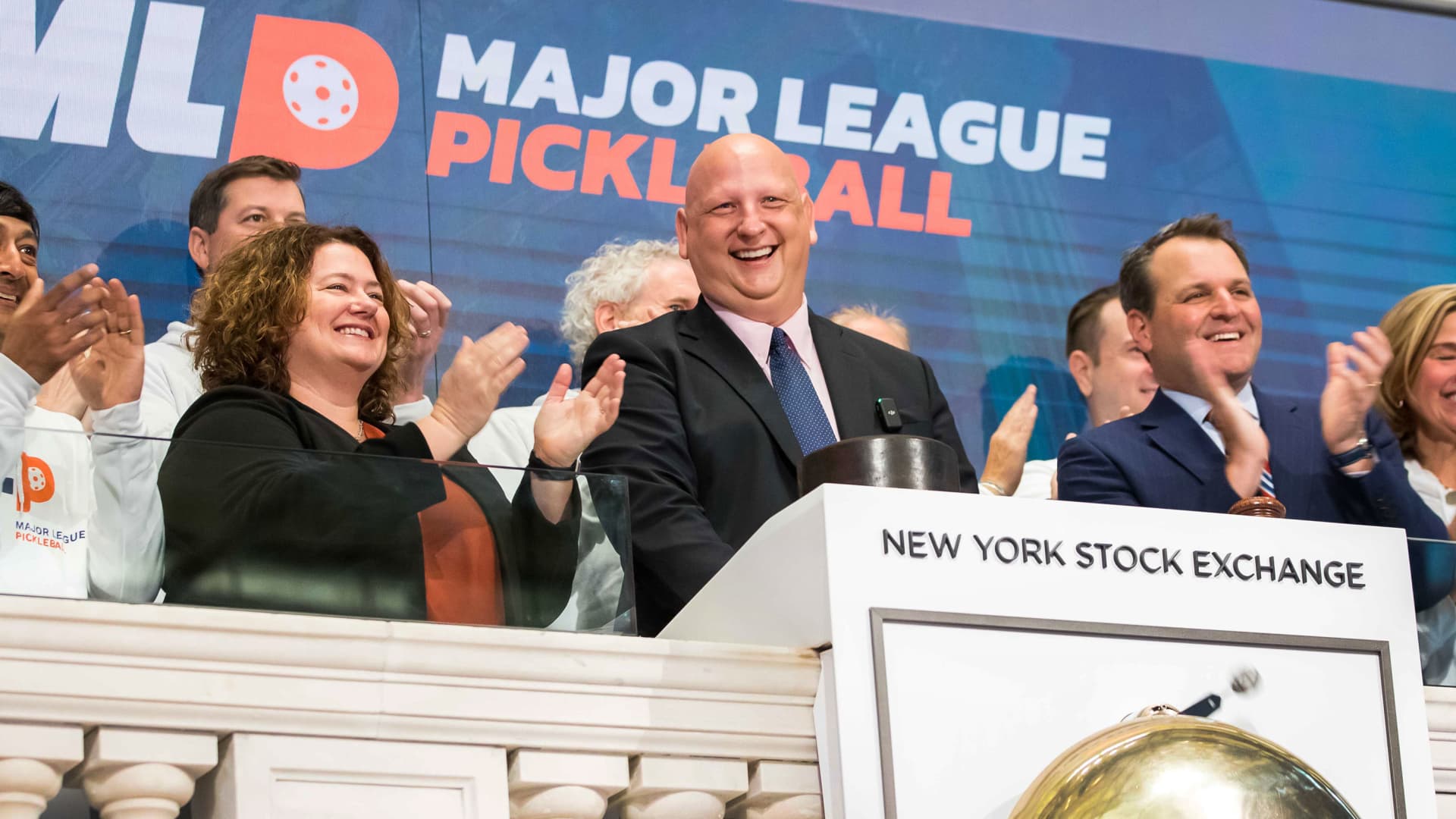Just a few years ago, pickleball was barely known to most people. Today, it's America's fastest growing sport.With courts popping up in cities and par

Just a few years ago, pickleball was barely known to most people. Today, it’s America’s fastest growing sport.
With courts popping up in cities and parks across the country, celebrities and pro athletes buying up pro teams, and more than 36 million people giving it a shot last year, it’s hard to escape the pickleball buzz.
One of the sport’s biggest boosters is Steve Kuhn, a former hedge fund manager who founded Major League Pickleball. He spoke this week at CNBC’s Game Plan conference about the sport’s rapid rise and some of their biggest challenges on the horizon.
“I think there was a time when pickleball was considered a sport that was not really a sport. There was almost like a hushed, embarrassed tone, when talking about it,” said Kuhn, who is known to wear red, white and blue cap saying “Pickleball will save America.”
“But today, when Kevin Durant, Lebron James and Tom Brady say it’s cool, I think that changes everybody’s opinion,” he said.
The billionaire, who lives in Austin, has gotten the pro league off the ground by growing the business with sponsorships, media deals and expansion teams.
Major League Pickleball teams today are going for as much as $10 million. Just a year ago, teams were being scooped up for as little as $100,000. Professional Pickleball can be seen on almost every major television network and many streamers.

With the rapid growth of the sport has come new challenges, such as making the game more accessible, easier to learn, and creating consistent rules and scoring.
Kuhn said he believes rally scoring, which allows players to score regardless of who is serving, would be beneficial to the sport.
“We’re begging the sport to follow our lead on that. We think that would make it easier for more people to learn and have fun, especially kids,” he said.
Not everyone’s a fan of pickleball, though. As the sport has exploded, complaints have grown, too. In towns across America, neighbors are griping about the noise from the ball hitting the paddle. With the growing demand, many towns are converting their tennis courts into pickleball courts, angering the tennis players.
“We need to create dedicated pickleball courts, where we’re not going to bother anybody. It’s our responsibility to do that,” Kuhn said.
Kuhn said he’s also passionate about getting more kids and diverse communities to participate. He will be heading to Washington in the next few months to talk with members in the House, Senate and White House about getting more government funding for the sport, he said.
Kuhn said school gyms can build pickleball courts at an incredibly low cost and it’s a great way to get kids moving again.
While he’s happy with the sport and excited about where it’s going, there is just one thing about pickleball Kuhn isn’t quite sold on: its name, which was came from pickle boat races in Bainbridge Island, Washington.
“I still don’t love the name,” Kuhn said. “But it doesn’t matter anymore.”

www.cnbc.com
